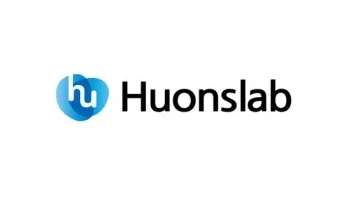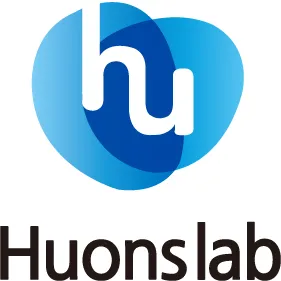
Huonslab Strengthens HYDIZYME™ Pipeline with Formulation Patent, Targeting 2026 Market Launch
Huonslab Co., Ltd., a subsidiary of Huons Global (KOSDAQ:084110), has taken a major step forward in its mission to bring innovative biologic formulations to market with the announcement that it has secured a patent in South Korea for the formulation of its lead drug candidate, HYDIZYME™ (Recombinant Human Hyaluronidase PH20, also known as HLB3-002). This patent specifically covers a stable pharmaceutical composition that is free of serum albumin, a key advancement that positions the company to pursue regulatory approval by 2026.
Advancing Stability and Purity in Biologic Formulations
The newly granted patent protects a serum albumin-free formulation of HYDIZYME™ that maintains both its enzymatic activity and molecular integrity under refrigerated conditions. Stability is a critical challenge for biologics, particularly those requiring cold-chain storage, and Huonslab’s achievement represents a meaningful stride toward developing a more stable and commercially viable drug product. By eliminating serum albumin—a commonly used stabilizer in biologics—the company not only enhances the formulation’s safety profile but also aligns the product with evolving regulatory and manufacturing preferences, which are increasingly focused on minimizing animal- or human-derived components in injectable therapeutics.
According to Huonslab, this patent complements the company’s existing intellectual property portfolio and enhances the competitiveness of HYDIZYME™ in global markets. The new formulation patent adds to the foundation laid last year when the company secured patent protection for its proprietary method of producing intact recombinant human hyaluronidase. Together, these patents form a comprehensive IP strategy aimed at protecting both the process and the product—two pillars essential for successful commercialization.
Expanding IP Reach to Global Markets
The significance of this patent extends beyond the domestic market. Huonslab has confirmed plans to file the newly issued formulation patent under the Patent Cooperation Treaty (PCT), initiating the process of securing protection in key international markets such as the United States, Europe, China, Japan, and India. Meanwhile, the previously filed patent on the manufacturing method is already under examination in these same territories. This multi-pronged IP strategy is designed to secure freedom-to-operate, build licensing value, and deter potential biosimilar or generic entrants as HYDIZYME™ moves closer to regulatory submission.
By securing these intellectual property protections across multiple jurisdictions, Huonslab is not only defending its innovations but also laying the groundwork for potential global partnerships or licensing agreements—critical considerations for expanding market access beyond South Korea.
Clinical Milestones and 2026 Regulatory Pathway
In parallel with its IP achievements, Huonslab continues to make steady progress on the clinical development front. The company recently announced the completion of patient enrollment for its ongoing HYDIZYME™ clinical trial, marking a major milestone in its timeline toward regulatory submission. The trial is expected to yield a comprehensive dataset that will support the company’s planned application to the Ministry of Food and Drug Safety (MFDS) in South Korea during the second half of 2025.
Commenting on the progress, Chae Young Lim, Chief Technology Officer at Huonslab, stated, “We have successfully completed last patient enrollment for the HYDIZYME™ clinical trial, and we plan to submit the marketing application to South Korea’s Ministry of Food and Drug Safety (MFDS) in the second half of 2025 with a complete data package.” Lim added, “We will continue to expand the use of our HyDIFFUZE™ platform as a drug diffusion enhancer and accelerate the development of more convenient subcutaneous injectable formulations.”

HYDIZYME™ and the HyDIFFUZE™ Platform: Enabling Subcutaneous Biologics
At the heart of HYDIZYME™’s value proposition is its mechanism of action. The product is based on recombinant human hyaluronidase PH20, an enzyme that transiently degrades hyaluronic acid in the extracellular matrix of subcutaneous tissue. This process temporarily opens up the subcutaneous space, facilitating the rapid and efficient absorption of co-administered therapies. By improving tissue permeability, HYDIZYME™ enables the subcutaneous administration of biologics that would otherwise require intravenous (IV) infusion—a significant step forward in improving the convenience and accessibility of modern therapies.
Building on this technology, Huonslab has developed its proprietary HyDIFFUZE™ platform. This platform leverages the permeabilizing capabilities of recombinant hyaluronidase to transform IV-administered biologics, including monoclonal antibodies and other large-molecule therapies, into subcutaneous formulations. The shift from IV to subcutaneous delivery offers several patient-centered benefits, including reduced clinic visits, shorter administration times, and greater flexibility for at-home treatment.
Competitive Edge in a Growing Market
The market for recombinant human hyaluronidase is expanding rapidly, driven by the broader biologics boom and increasing demand for patient-friendly drug delivery methods. While the enzyme has historically been used to enhance drug dispersion in ophthalmology and cosmetic procedures, its application in systemic therapies—especially in oncology and immunology—represents a high-growth frontier. Companies like Halozyme Therapeutics have pioneered the field with their ENHANZE® platform, which has been licensed to major pharmaceutical companies. Huonslab appears to be following a similar trajectory with its HyDIFFUZE™ platform, aiming to carve out a share in this evolving market by offering a competitive alternative with its own proprietary technologies.
The new formulation patent, in particular, may serve as a distinguishing feature in the competitive landscape. The removal of serum albumin not only improves the product’s safety and manufacturability but may also open the door for expanded indications or compatibility with a broader range of biologic co-formulations.





